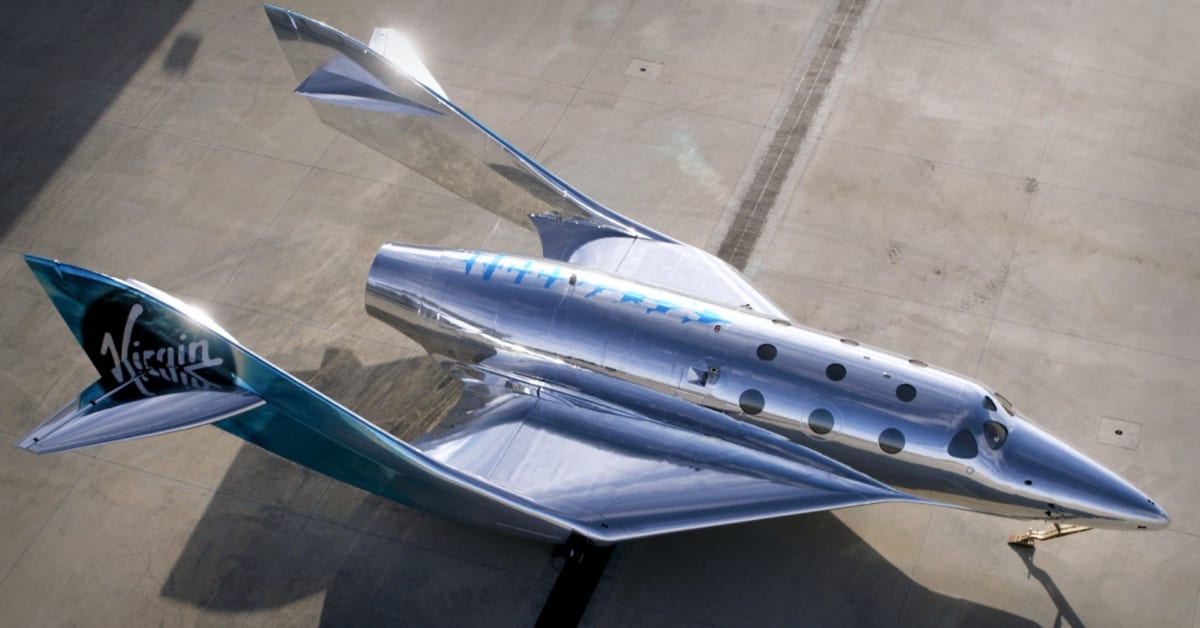
It is a blow that will resonate throughout the British aerospace industry for a long time.
Great Britain had bet on Virgin Orbit, the company of billionaire Sir Richard Branson, to become a space power. But these ambitions, which manifested themselves in the development of a satellite manufacturing industry, have just taken a huge blow.
The company is ceasing operations "for the foreseeable future” after failing to secure a funding lifeline, only five years after it was created, CEO Dan Hart told employees on March 30, according to CNBC.
"Unfortunately, we’ve not been able to secure the funding to provide a clear path for this company,” Hart said, according to an audio recording of the meeting.
'No Choice'
"We have no choice but to implement immediate, dramatic and extremely painful changes,” Hart said, adding that this would be "probably the hardest all-hands that we’ve ever done in my life.”
Virgin Orbit (VORB) didn't immediately respond to a request for comment.
The company confirmed in a regulatory filing that it is laying off 85% of its workforce, or 675 employees, "in order to reduce expenses in light of the company's inability to secure meaningful funding."
Those impacted are located in all areas of the firm, according to the document filed with the U.S. Securities and Exchange Commission.
Virgin Orbit said it estimates that it will incur aggregate charges of approximately $15 million, consisting primarily of $8.8 million in severance payments and employee benefits costs, and $6.5 million in other costs primarily related to outplacement services.
The company expects to recognize the majority of these charges in the first quarter of 2023. The layoffs will be substantially complete by April 3.
"In addition, the company may incur other charges or cash expenditures not currently contemplated due to unanticipated events that may occur, including in connection with the implementation of the workforce reduction," Virgin Orbit warned.
These developments have accelerated the fall in Virgin Orbit's stock. The stock started the year at $1.85. It is currently trading at around 20 cents. This is a decline of 89.1% in just three months. It's a spectacular stock market rout for a company that went public, via a special purpose acquisition company, or SPAC, with a valuation of nearly $4 billion in December 2021.
Virgin Orbit only has a stock market capitalization of $67.4 million at the time of writing.
Founded in 2017 and based in California, Virgin Orbit suffered a major setback earlier this year when an attempt to launch the first rocket into space from British soil ended in failure. Virgin Orbit was the company organizing this mission, in collaboration with the British Space Agency and Spaceport Cornwall, which aimed to launch nine satellites into space, which would have been a major first for the UK. An “anomaly” prevented the rocket from being put into orbit.
"The data is indicating that from the beginning of the second stage first burn, a fuel filter within the fuel feedline had been dislodged from its normal position," Virgin Orbit explained mid-February. "Additional data shows that the fuel pump that is downstream of the filter operated at a degraded efficiency level, resulting in the Newton 4 engine being starved for fuel. Performing in this anomalous manner resulted in the engine operating at a significantly higher than rated engine temperature."
Unique Method
Virgin Orbit was not the same in the days following this failure.
In mid-March, the company had suspended its operations while it held discussions on possible sources of financing and explored strategic opportunities. It had indicated a few days later that it had resumed its activities.
Virgin Orbit stood out from rivals like Elon Musk's SpaceX. It wants to offer a fast and adaptable space launch service for small satellites weighing between 300 and 500 kg, a growing market.
The 21-meter Virgin Orbit rocket, dubbed LauncherOne, does not take off vertically, but is attached under the wing of a modified Boeing 747 called "Cosmic Girl”. Once the correct altitude is reached, the plane releases the rocket, which starts its own engine to push itself into space and to place its cargo in orbit.
Launching a rocket from an airplane is easier than a vertical take-off, because theoretically a simple airstrip is enough, instead of an expensive space launch pad, experts say. In summary, the advantage of this launch method is that it is more flexible and less expensive to put satellites into orbit than vertical rocket launchers.
Sir Richard Branson's space ambitions are now supported only by Virgin Galactic, which aims to send tourists into space.
Article From & Read More ( Richard Branson's Virgin Orbit Collapses - TheStreet )https://ift.tt/kWdxTIq
Business
Bagikan Berita Ini














0 Response to "Richard Branson's Virgin Orbit Collapses - TheStreet"
Post a Comment